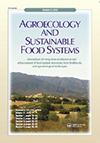Impacts of Seed Clubs in Ensuring Local Seed Systems in the Mekong Delta, Vietnam
引用次数: 27
Abstract
The formal seed sector only meets a small proportion of farmers' rice seed requirements in the Mekong Delta, Vietnam. To cope with the growing demands, farmers have organized themselves in seed clubs to produce and supply the needed seeds themselves. This study assesses the status of rice seed production and proposes a model of how to ensure adequate seed supply in the Mekong Delta. Data of total seed production, distribution, prices, and used varieties of each crop season was collected from 19 seed stations and 309 seed clubs in all the 13 provinces of the Delta for the whole year of 2008. One hundred sixty none farmers were interviewed about seed demand and supply. Effective demand of seed in the Mekong Delta was about 0.55 million tons/year. The formal seed system met 3.5% and the informal seed system supplied more 16% of needed amounts. The informal system had significantly lower seed prices, but more diversity of rice varieties than the formal seed system. Both seed systems supplied seeds of rice varieties that had not yet been certified by the formal sector. Thus, new varieties were of high demand. Socialization of seed production was recommended to ensure the local seed supply systems for developing sustainable agriculture in the future. Results of this study indicate status of seed demands and supply to improve and link developing among seed systems in the Mekong Delta.种子俱乐部对确保越南湄公河三角洲地区种子系统的影响
在越南湄公河三角洲,正规的种子部门只能满足一小部分农民对水稻种子的需求。为了满足日益增长的需求,农民们自己组织了种子俱乐部,自己生产和供应所需的种子。本研究评估了湄公河三角洲水稻种子生产的现状,并提出了一个如何确保充足种子供应的模型。对长江三角洲13省19个种子站和309个种子俱乐部2008年全年种子生产、销售、价格和各作物季使用品种的数据进行了采集。对160名农民进行了关于种子需求和供应的访谈。湄公河三角洲种子有效需求量约为55万吨/年。正规种子系统满足了3.5%的需求,非正规种子系统提供了16%的需求。非正式种子系统的种子价格明显低于正式种子系统,但品种多样性高于正式种子系统。这两个种子系统提供的水稻品种的种子尚未得到正规部门的认证。因此,新品种的需求量很大。建议将种子生产社会化,以确保未来发展可持续农业的地方种子供应系统。本研究结果揭示了湄公河三角洲种子系统的需求和供应状况,有助于改善和联系种子系统的发展。
本文章由计算机程序翻译,如有差异,请以英文原文为准。
求助全文
约1分钟内获得全文
求助全文

 求助内容:
求助内容: 应助结果提醒方式:
应助结果提醒方式:


